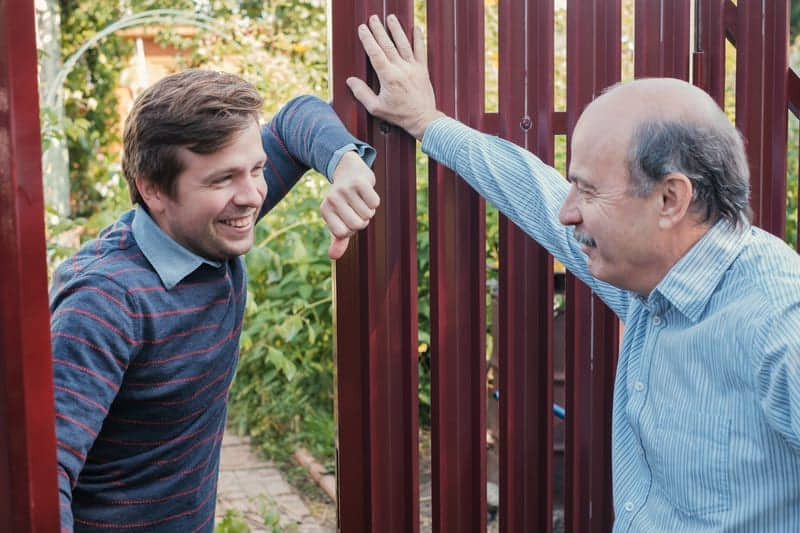If you're in Texas, you may come across the term "Squatter," which refers to someone who occupies an empty piece of land or property unlawfully. In Texas, squatters who continuously occupy an unclaimed property can acquire ownership rights, known as "Squatters Rights," through a legal concept called adverse possession.
It's important to understand these laws, as they can have significant implications for both the squatter and the rightful owner. In this article, we'll explore how Squatters Rights in Texas are established and what they entail.
Squatting vs Trespassing in Texas
When it comes to the illegal occupation of vacant land or property in the state of Texas, it's essential to recognize that squatters and trespassers are not interchangeable terms. Though both involve unlawful occupation, there are significant differences in their intent and actions. Trespassers are typically temporary occupants who enter a property for a short duration without any intention of claiming ownership or making it their home.
In contrast, squatters are long-term residents who establish a permanent presence on the property, treating it as their own and even going as far as making renovations or improvements. If not evicted within a specific legal time frame, squatters can file for adverse possession of the previously vacant property, effectively gaining ownership rights.
It's important to note that while all squatters are trespassers, not all trespassers are squatters, as the latter requires a prolonged presence and intent to claim ownership.

Related: What Are My Rights As A Tenant?
How do Texas squatters gain adverse possession rights?
In Texas, squatters seeking to claim adverse possession must fulfill seven specific criteria before pursuing legal rights to an unoccupied property. It is important to note that every state has its own distinct set of regulations that must be adhered to by squatters who wish to assert adverse possession:
1. Hostile Possession
In this context, hostile refers to occupying the property without the owner's permission, and it does not imply any physical threat or danger. The term encompasses various scenarios, such as when a squatter was unaware of an existing property owner, knowingly committed an illegal act, or believed in good faith that the property was available due to a faulty title or deed.
It's worth noting that a squatter who pays rent to the owner cannot claim hostile possession as that implies a landlord-tenant relationship.
2. Actual Possession
Another crucial element for squatters seeking to establish adverse possession in Texas is "actual possession," which means that they must physically reside on the vacant property and make it their primary home. However, just living there is not sufficient to satisfy the requirement for actual possession.
Squatters must also demonstrate that they have treated the property as their own by performing functional maintenance tasks, paying for utilities, and possibly even making aesthetic improvements to the property. These actions show that the squatter has taken responsibility for the upkeep and management of the property, further solidifying their claim to actual possession.
3. Color of Title
Squatters who meet the first five possession requirements and have occupied a vacant property continuously for three years in Texas can apply for "Color of Title," which is a claim to the title of the property. This claim can become the basis for a squatter's adverse possession claim. Once granted Color of Title, the squatter can apply for adverse possession immediately.
By meeting these requirements and filing for adverse possession, squatters in Texas can breathe new life into otherwise neglected and unused properties, making productive use of them.
4. Open & Notorious
Squatters cannot conceal their occupancy but instead must reside on the property openly and conspicuously. This means that their presence should be visible and known to the public to prevent the original owner from claiming ignorance of the illegal occupation. In other words, squatters must make it evident that they are residing on the property without permission, so the owner or anyone else cannot dispute their claim of adverse possession.
5. Exclusive Possession
Squatters aiming to claim adverse possession in Texas must also demonstrate "exclusive possession," which means that they have sole occupancy and control of the property. This implies that squatters cannot share possession with anyone else, including the owner or other squatters. Only one squatter can occupy the vacant property at any given time to establish adverse possession.
6. Continuous Possession
Once a squatter occupies a property, they must maintain continuous possession without interruption for an extended period. This implies that they cannot vacate the property for an extended period, whether it be weeks, months, or even years, without forfeiting their squatter status.
Under Texas law, squatters can apply for adverse possession after holding continuous possession for ten years.

Do Squatters Need to Pay Property Taxes in Texas?
In Texas, squatters are not required to pay property taxes to claim adverse possession. However, paying property taxes in full can prove advantageous for them. By doing so, squatters can shorten the required period of continuous possession of a vacant property. Instead of ten years, they can apply for adverse possession in just five years.
This can be a significant benefit for squatters, as it allows them to establish a legal claim to the property sooner, providing them with more certainty and security.
Can You Kick Out Squatters in Texas?
In Texas, it is illegal to use force to evict squatters. Instead, property owners must follow the state's judicial eviction process to legally remove squatters and regain possession of their property. To initiate the eviction process, property owners must first serve a three-day eviction notice to the squatter.
If the squatter does not vacate the property within three days, the owner can file an eviction lawsuit with the court. It is important to act quickly in a squatter situation, as delaying the eviction can give the squatter an opportunity to claim "Color of Title" and gain uncontested legal rights to the property.
FAQs about Squatters Rights In Texas
How long can a squatter stay in your house in Texas?
In Texas, a squatter can only claim adverse possession of a property if they have continuously resided in it for a period of 10 years without any interruptions. This means that if they give up the property for a while and then return to claim it later, they cannot file for adverse possession.
How do I claim squatters rights in Texas?
To claim squatters' rights in Texas, the requirements vary depending on the situation. If the squatter has "color of title," meaning they have documentation that appears to give them legal ownership of the property, they must prove that they have continuously resided on the property for at least 3 years. Alternatively, if the squatter has not been granted "color of title," they must pay property taxes on the property for 5 years and continuously reside there for a similar period of time to claim adverse possession.
Can you go to jail for squatting in Texas?
While squatters in Texas have certain rights, they must meet the requirements for adverse possession to exercise them. Failure to meet these requirements could result in them being arrested and charged with criminal trespassing.
Conclusion
Thank you for taking the time to read our blog post on Squatters Rights In Texas today!
In Texas, vacant and unsecured properties can attract squatters who may eventually claim adverse possession and legal ownership rights to the property. To prevent this from happening, property owners must act quickly and follow the state's judicial eviction process to remove squatters from their property. Squatters who meet the state's required criteria can eventually claim adverse possession, and gain legitimate ownership rights to the previously vacant property.





